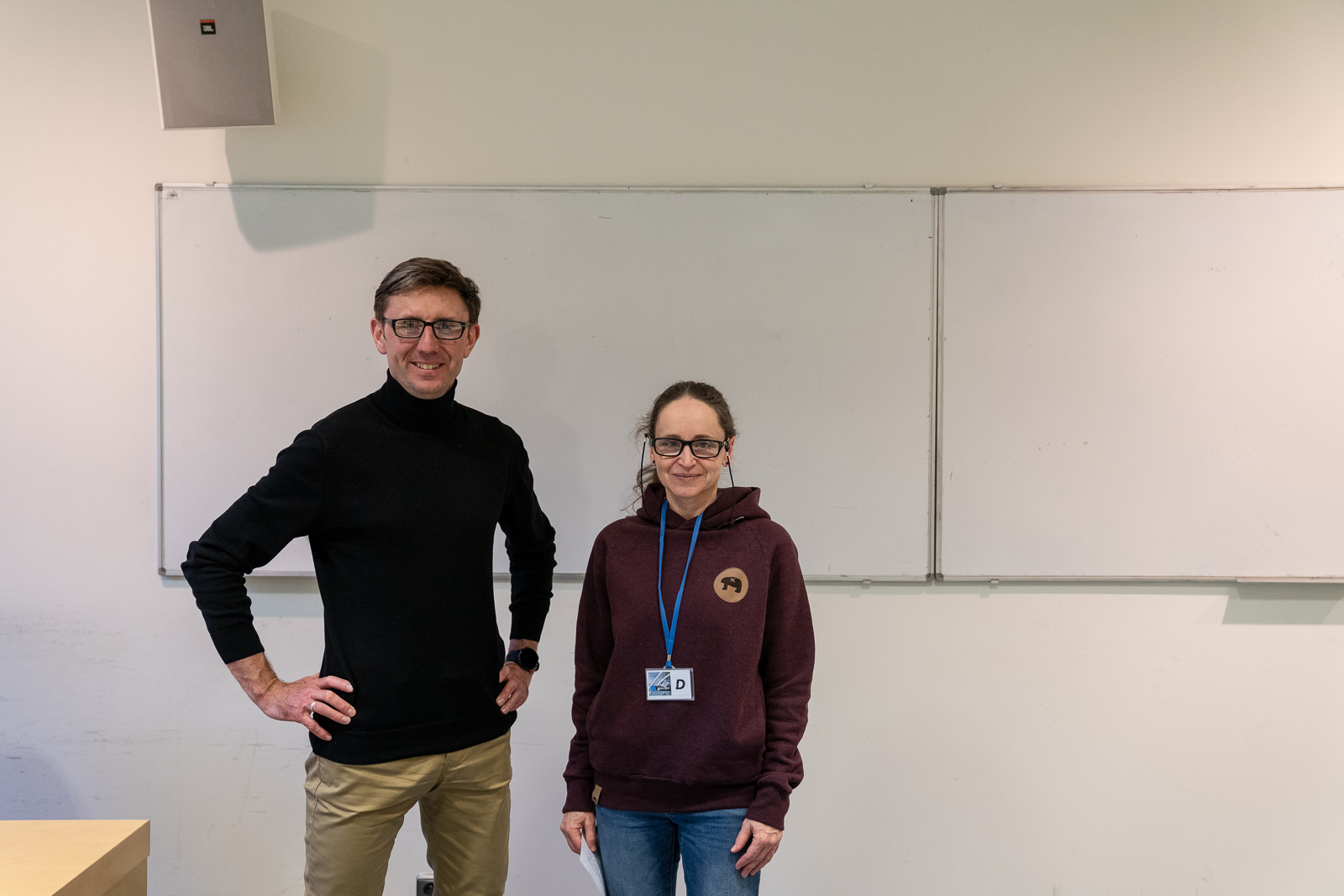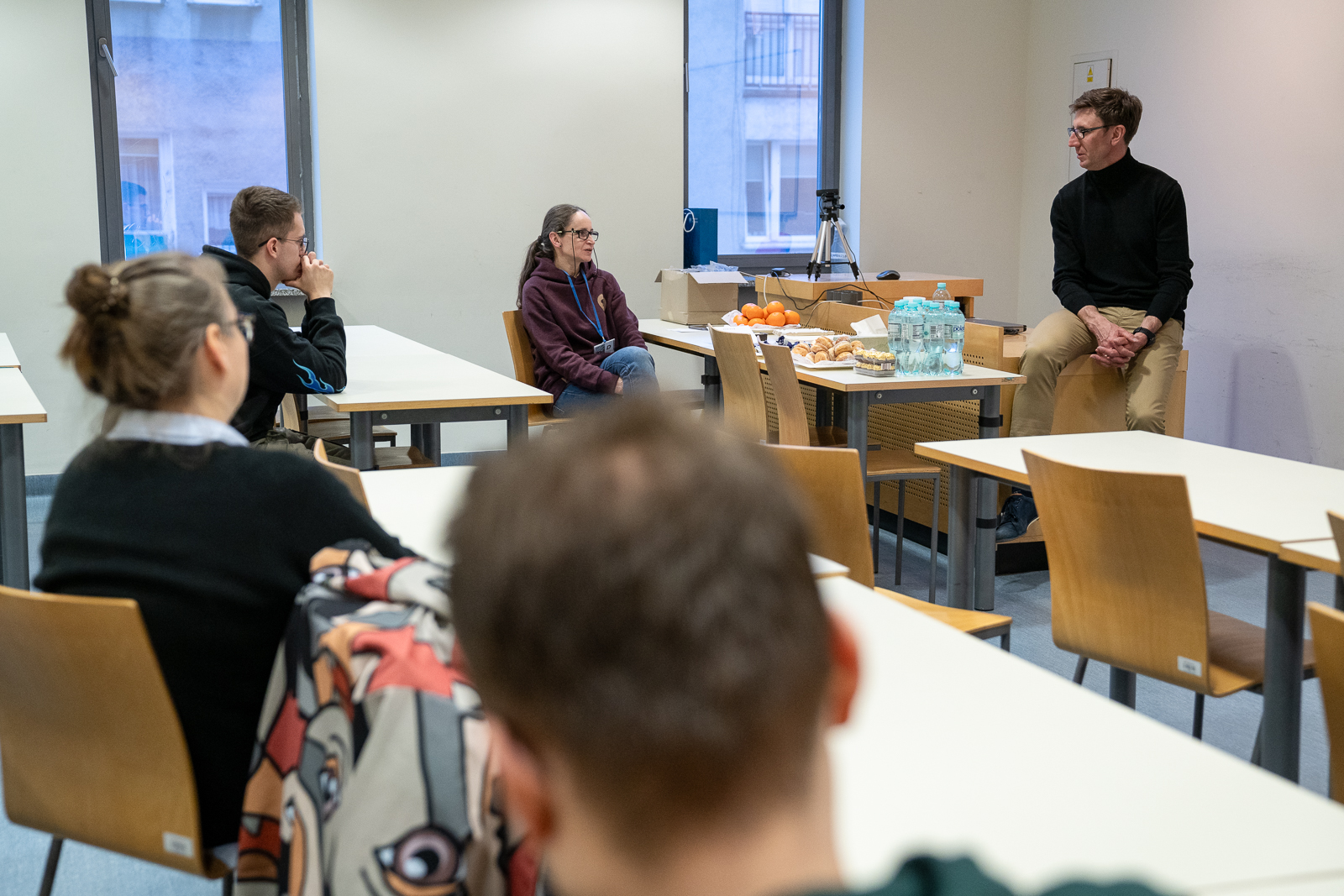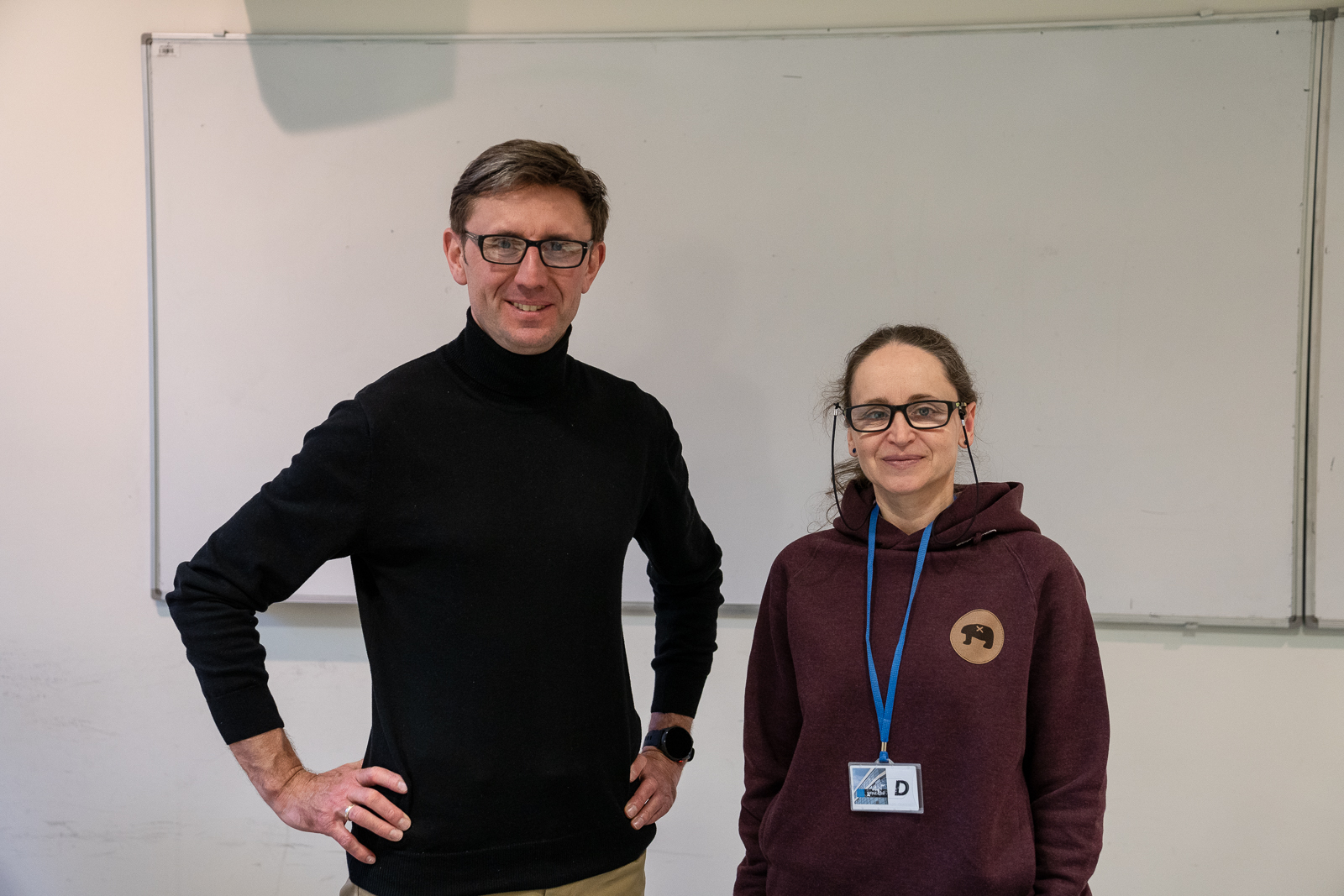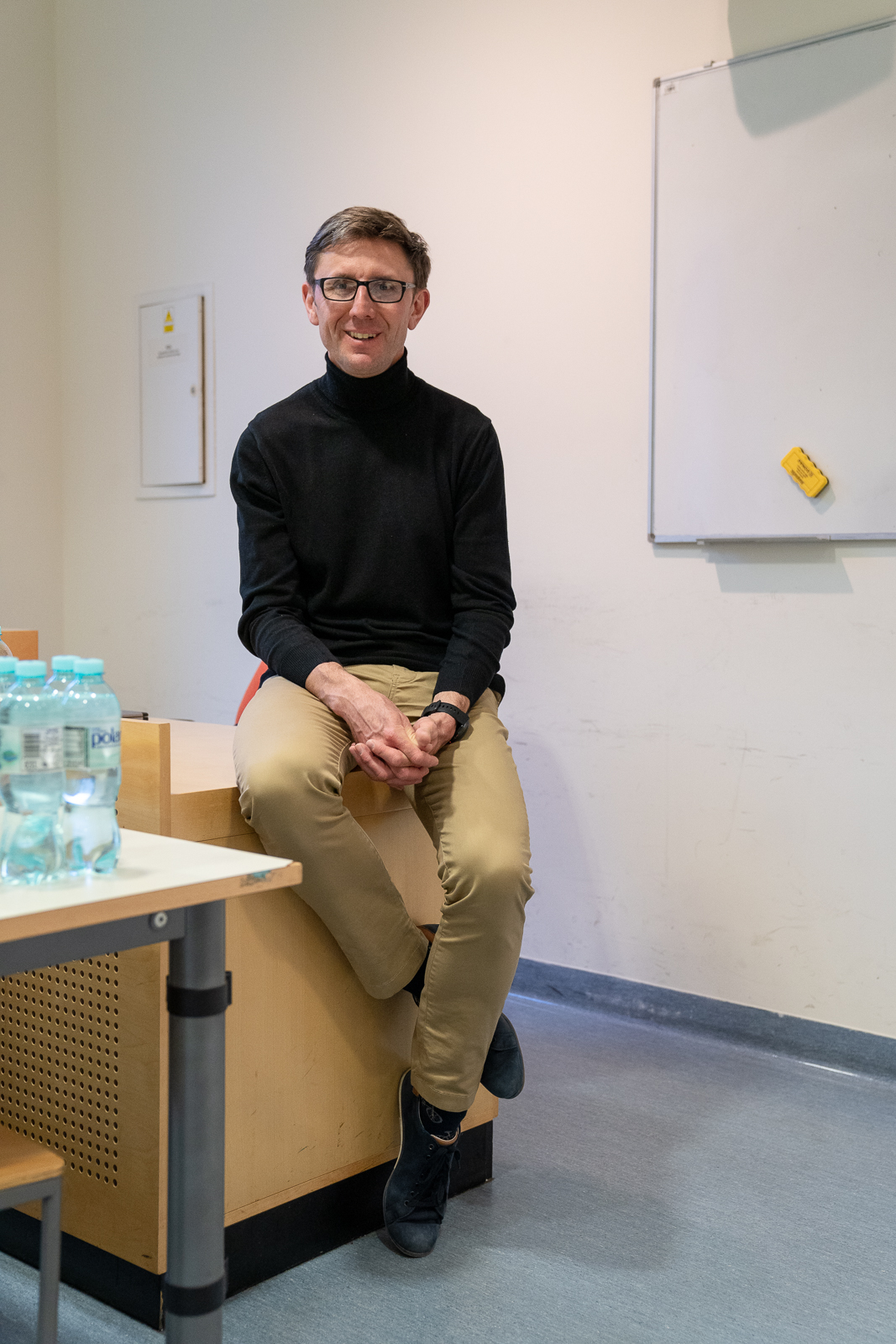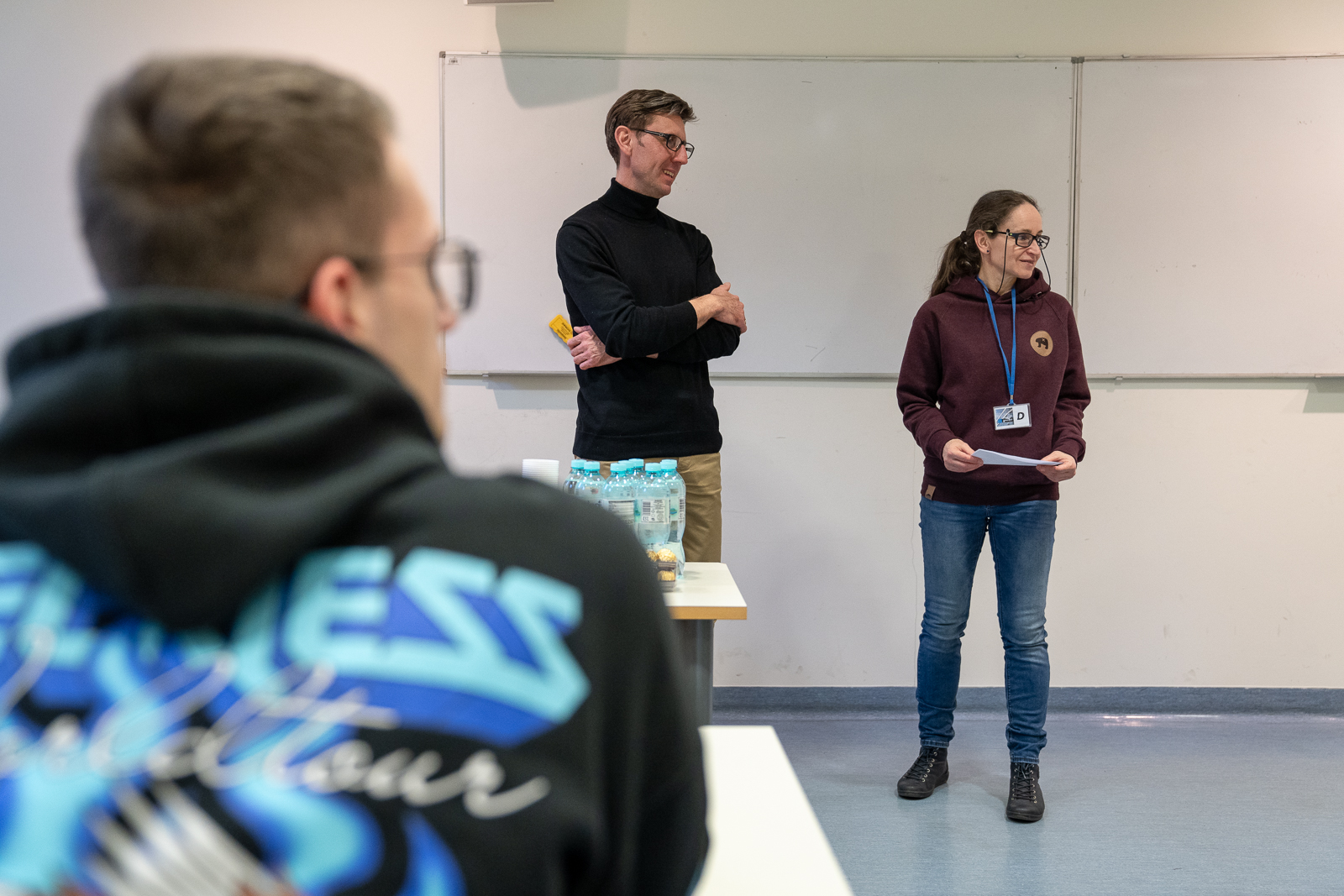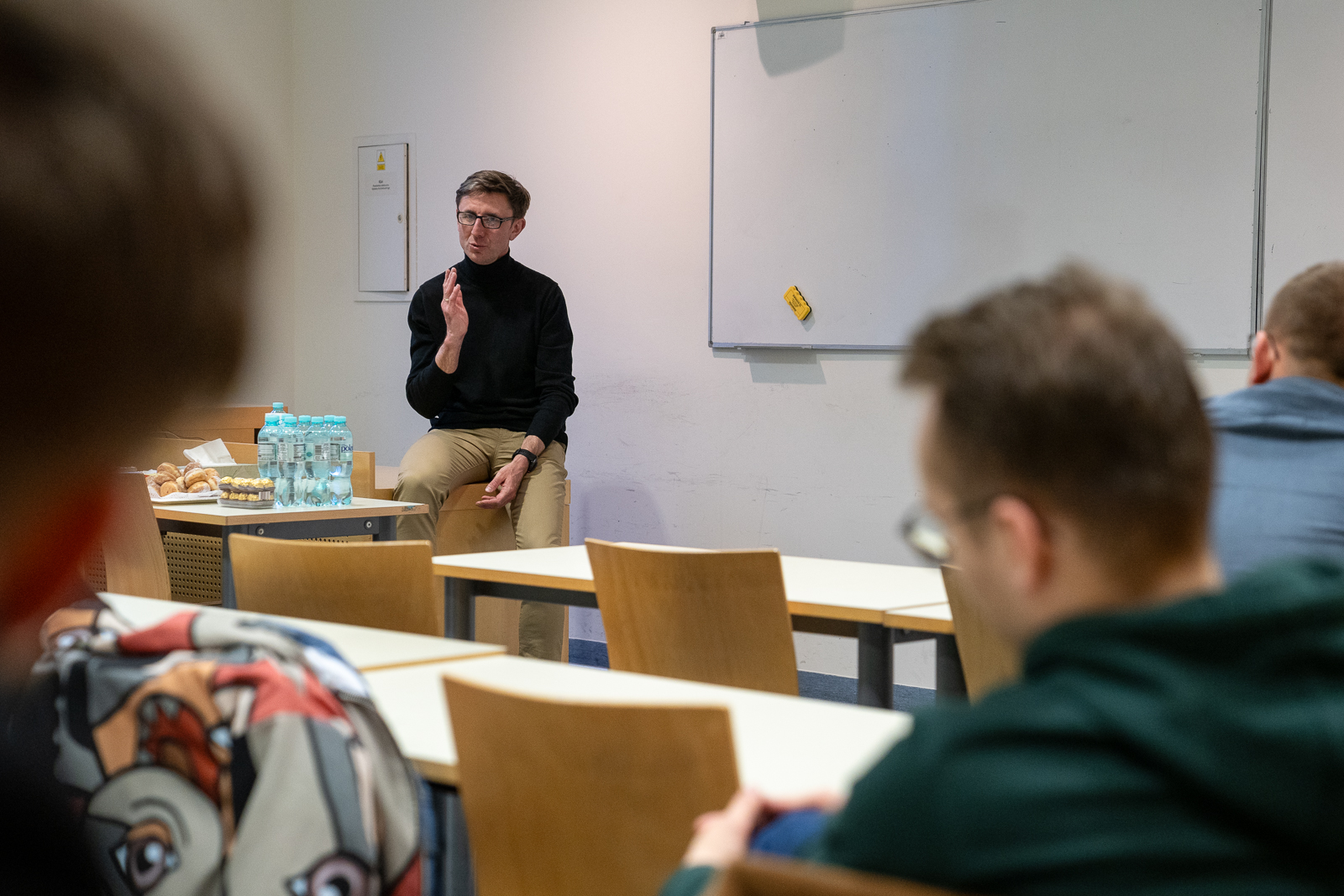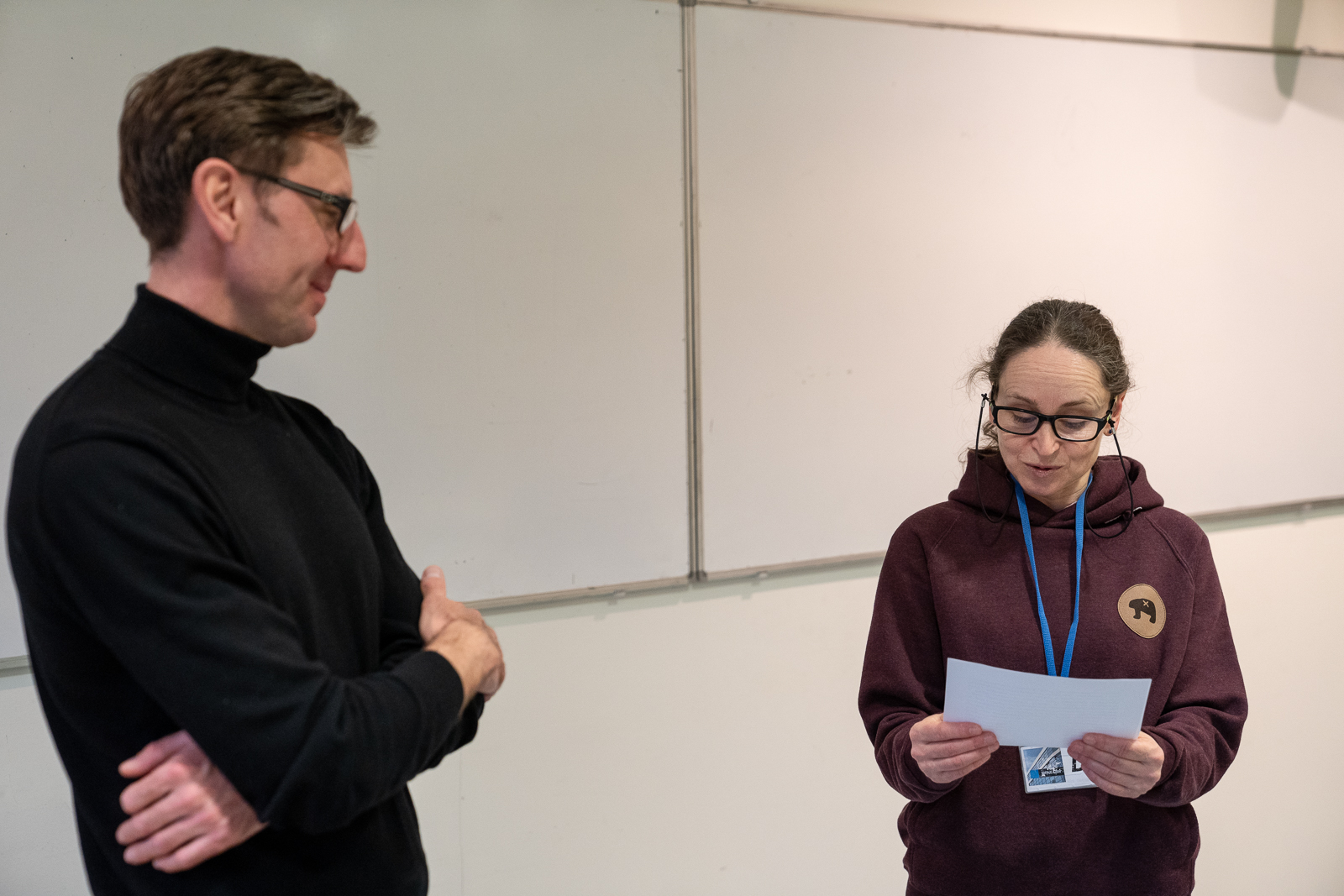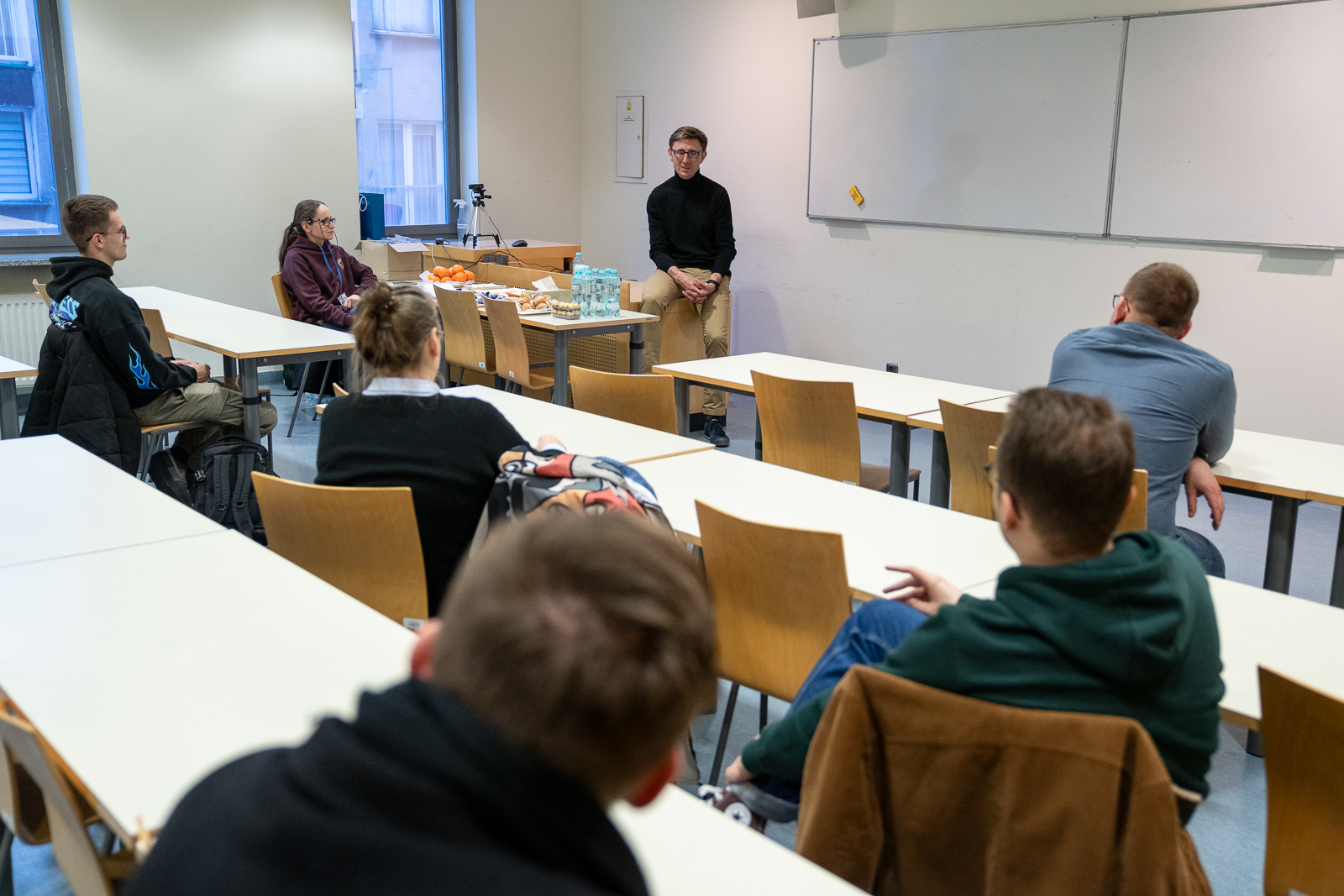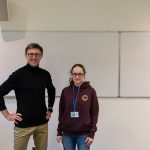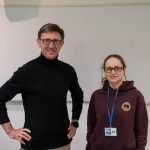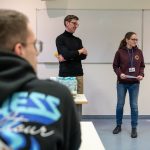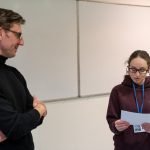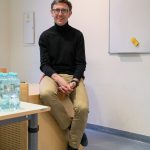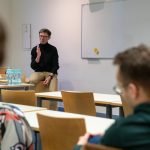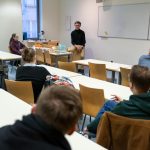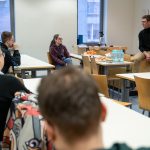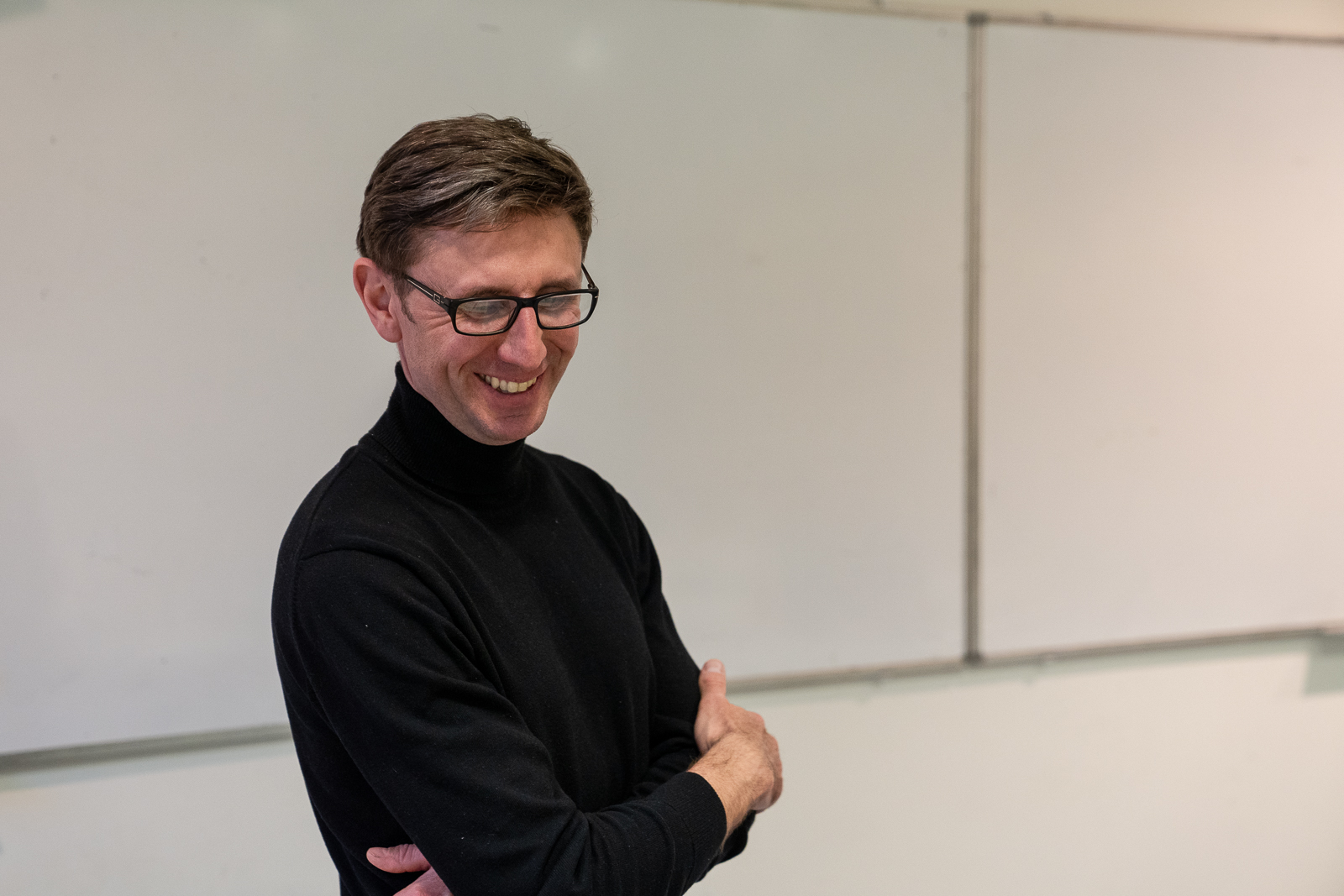
Photoreport from the meeting with Bartosz Huzarski
What happens in the head of the cyclist during the race, what happens during the training, and how to survive it? Why is the team time trial the most stressful out of the whole stage race? Why do some cycling teams carry everyday mattresses and pillows on the bus during the stage race? In which country do you often find such hotels that one wonders whether to open the suitcase first or the toilet door? How many bikes does the cyclist have at their disposal, and how many are riding behind them in the race?
How do professionals train? Is cycling alone enough, or do you need to implement a general workout? Is it better to train in a team or individually? Is it sensible to arrange training according to the seasons? How important is sleep and resting while training?
Bartosz Huzarski answered students’ questions at a meeting with the KU AZS cycling section held at the Faculty of Law, Administration and Economics on 26 February. He talked about the importance of strength training in cycling and even the importance of glasses in a race. He suggested what to look for when choosing the right bike and considered with listeners whether it is worth having five different bikes. We got to know how many bicycles he himself has, how many of them he uses, and how many he stashes in the attic. There have been some discussions about the superiority of inner tubes over tubeless sealants and vice versa and whether it’s a good time to buy a bike right now. Our guest pointed out that more and more people are involved in long-distance races and that the mental preparation for such races is very important. We even considered such matters as the long-distance Polish Academic Championships in gravel races (we concluded that perhaps everything depends on sponsors).
Our guest talked about the importance of sleep from his own experience as a professional cyclist and father of four children. For his great success, he considers the fact that he managed to balance his family life with a sports career on such a high level. “Going back from family life mode to sports mode was a bit of a sacrifice, and my teammates saw it. They gave me a day or two to recover because they knew that after that, I would always ride on 100%.”
Bartosz Huzarski had to answer a lot of questions about the diet of a cyclist and how much weight one can gain the most from the lowest body weight in the so-called season to the highest in the winter. “Everything is for people only in the right doses, except for the worst food” – these are the words of our guest. Together with students, he searched for a balance between proteins, carbohydrates, and fats. Together, we discussed whether food prepared by a nutritionist is more valuable than food prepared at home and how it compares to a hotel kitchen when you’re on a multi-stage race. “We counted calories, forced ourselves to drink during training, even though we didn’t want to drink at all, and tried not to finish training hungry.” This is what Mr. Bartosz absolutely forbade us to do – “When a person finishes training dehydrated, the next day, the body’s regeneration is weaker by at least 10%, and regeneration is of great importance in preparation for the start of competitions.”
We learned how important it is while training to get out of one’s comfort zone and how little the training itself resembles a race (you train mainly for time, not kilometers). Bartosz told us why he raced best in the US and worst in Belgium and the Netherlands.
We even brought up financial matters. Can a professional make a living from cycling? “There are rich teams, but there are also those for which you ride because you want to be a cyclist, and you’re waiting for luck. Just like in life.”
We didn’t stop on financial matters. There were many memories, stories, and pieces of advice. We listened with bated breath to Huzar’s stories and absorbed the knowledge he was eagerly sharing with us. I hope for more meetings like this in the future.
Translated by Jakub Wolf (student of English Studies at the University of Wrocław) as part of the translation practice.
